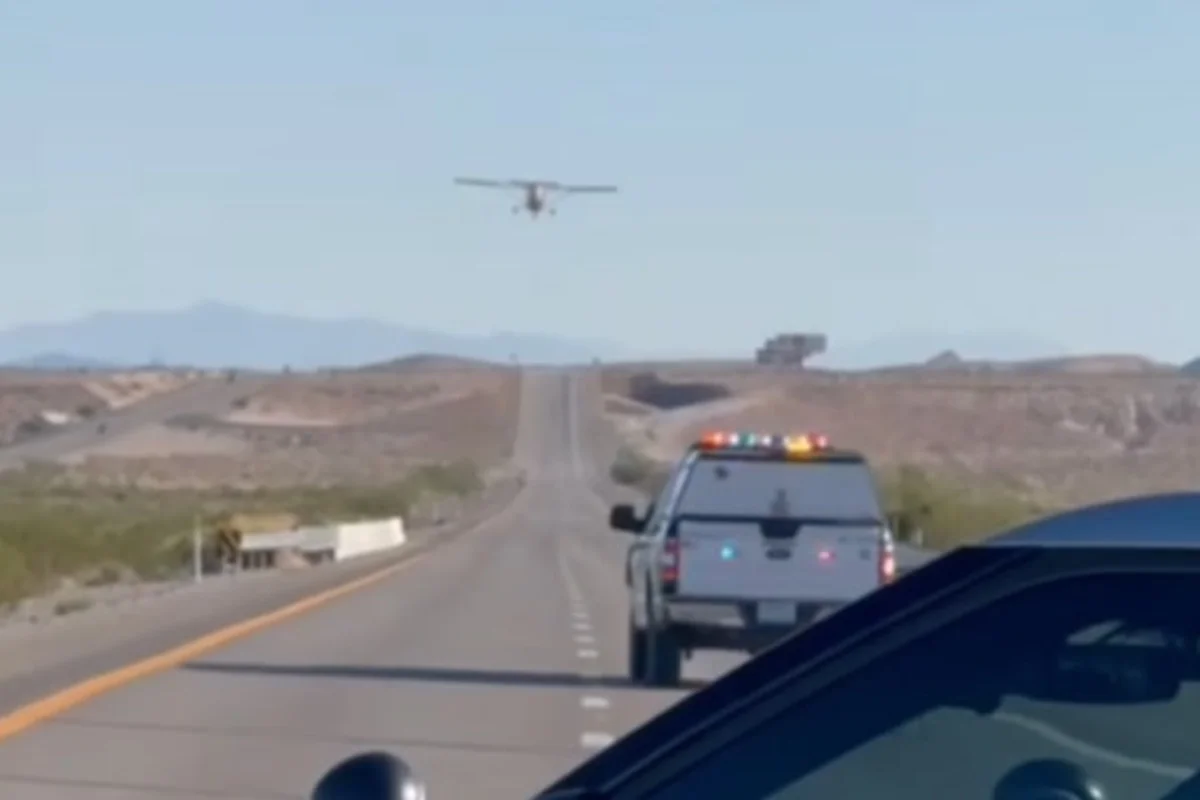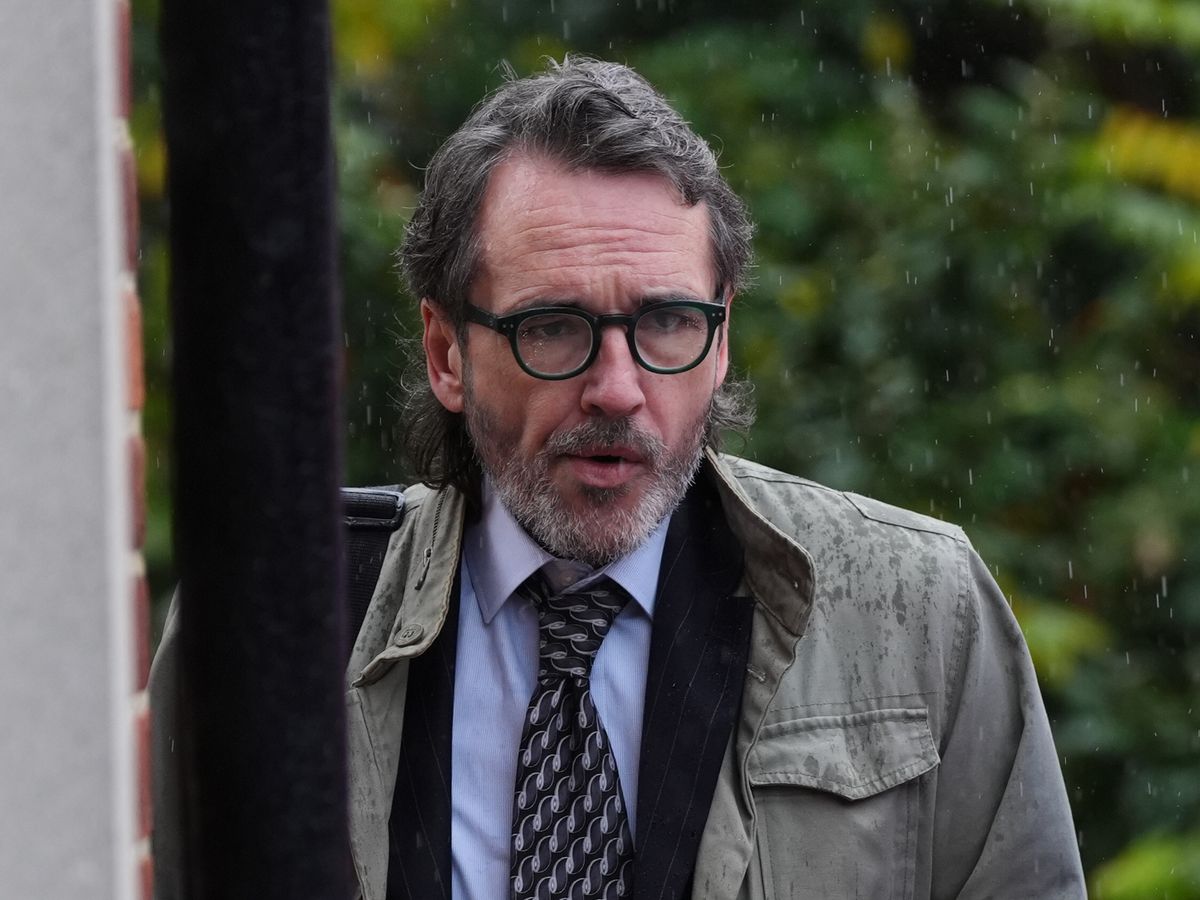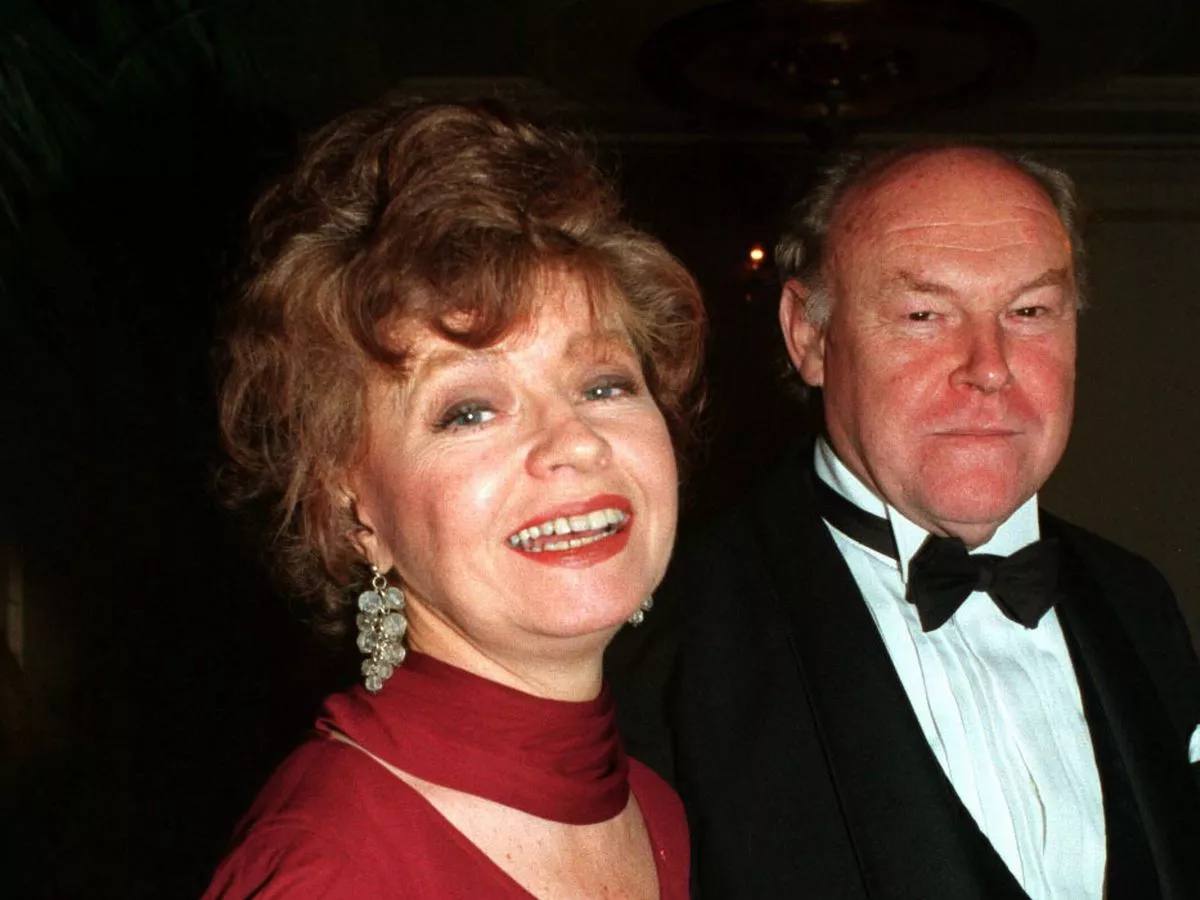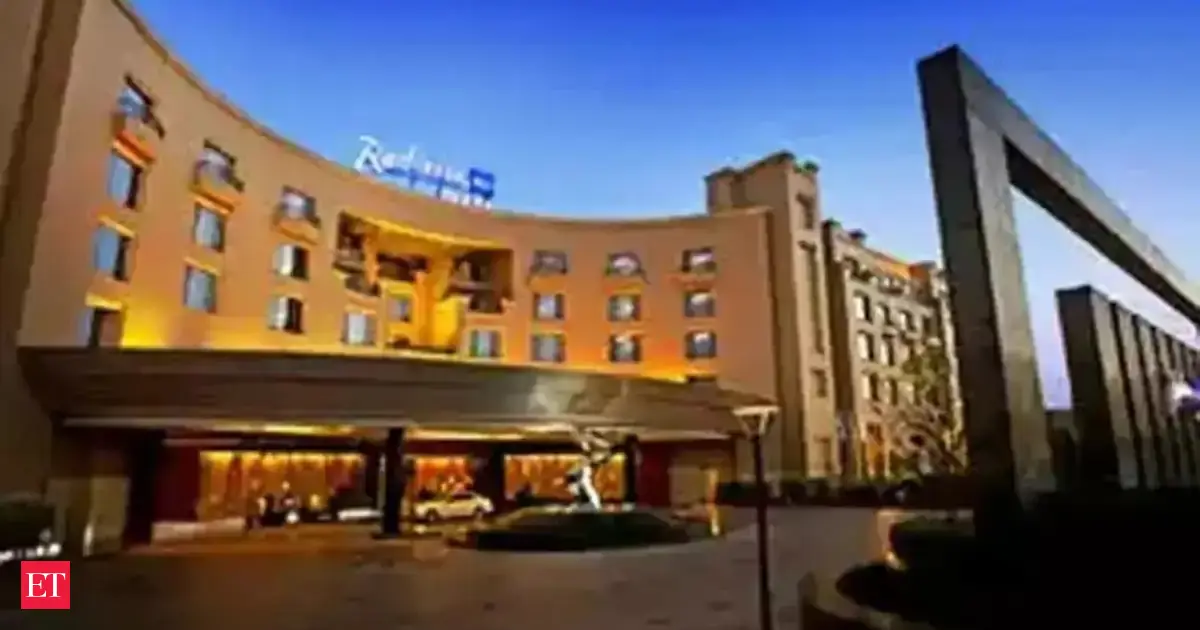Copyright dailymail
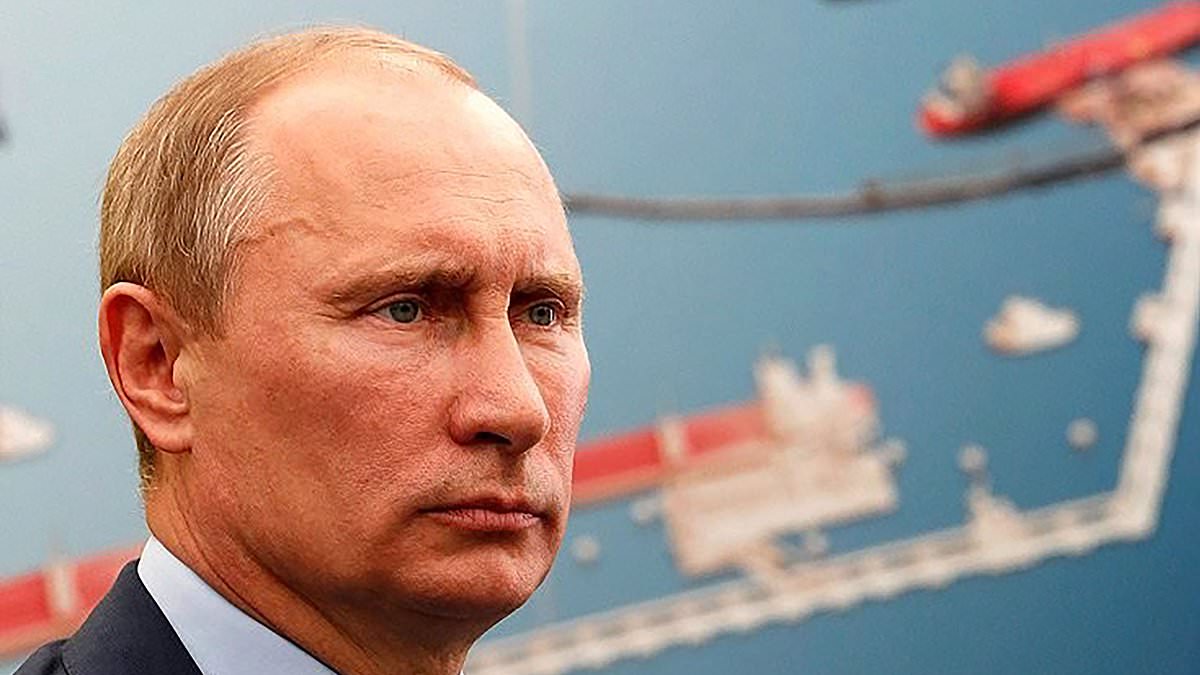
Vladimir Putin is this weekend approaching a perfect storm as world oil prices plummet, just as a combination of Western sanctions and Ukraine’s concerted strikes on refineries begin to bite. His war economy - after defying gravity for several years - is now starting to creak with ordinary Russians, especially, badly hit in their pockets, and worse to come. There are flickering signs of Russians, long intimidated by his police state, daring to criticise him and his war which is now only 70 days short of the length of Soviet participation in the defeat of Hitler in WW2. Cemeteries and hospitals all across the country’s 11 time zones testify to the mesmerising toll of bloodletting, which worsens by the day. Moreover, analysts spot new indications of dissent and infighting inside his monstrous security apparatus - and among his political and oligarchical allies - as Putin repeatedly refuses to stop bombing while driving Russia towards the buffers. The past week has seen an upsurge in nuclear threats from Putin himself, sabre-rattling over his terrifying new missiles, and his highly paid TV propagandists who issue daily warnings of atomic doom against especially Britain - seen in Moscow as the ringleader of Western backing for Ukraine - but also other NATO members. Yet this menacing and frenzied rhetoric now appears a sign of desperation and weakness, rather than strength, raising the question over whether the gathering storm could bring down the 73-year-old dictator. Russian revolutions often come suddenly: few predicted the implosion of the Soviet Union in 1991, despite the fall of the Warsaw Pact countries in eastern Europe. Earlier, the abrupt abdication of the last tsar Nicholas II and collapse of the Romanov dynasty came as a shock. A putative putsch against Putin in 2023 led by Wagner private army chief Yevgeny Prigozhin also emerged from nowhere and was put down only as the rebels marched on Moscow, with the instigator assassinated soon afterwards in an aircraft explosion seen as ordered by the Kremlin. Yet could oil now be the key to a more successful coup against Putin? A global glut with the Saudis flooding the world oil market fuels a predicted drop in barrel prices to the low $40s. Haunting Putin are three months of falling prices and a forecast of global oil market oversupply of four million barrels per day in 2026. The Russian economy - and Putin’s war machine - is built on oil revenues yet as head of the International Energy Agency’s industry and market division Toril Bosoni said, something has to give: 'The global oil market may be at a tipping point.' This comes as Donald Trump’s new sanctions have clobbered Putin’s two oil giants Rosneft and Lukoil, key cash cows of the Kremlin’s coffers. Putin still sells crude to China, and elsewhere uses his notorious 'shadow fleet' of rusting, often uninsured, and poorly maintained oil tankers with opaque ownership and flagging arrangements, which are increasingly sanctioned, a campaign led by Britain, and finding it harder to find buyers. But Russia earns less per barrel just as his war costs soar, leading to a need to raise taxes and cut key spending pledges, tying his economy in a straightjacket and punishing his already browbeaten middle class. This comes as Ukraine is daily carrying out highly successful attacks and re-attacks of Russian oil refineries and petrochemical facilities, setting them ablaze, putting them out of use, the other tentacle of a pincer movement against Putin. Among the most notable long range drone attacks recently were on the Ryazan and Yaroslavl oil refineries, directly impacting on supplies to capital city Moscow, and the detonation of the largest oil terminal in Russian-occupied Crimea at Feodosia, which burned for days on end. Petrol queues have become the norm across Russia, as prices have jumped. Ukrainian president Volodymyr Zelensky revealed that his spies have noted the harm inflicted on Russia over oil from such strikes - refining capacity slashed by 20 percent due to dozens of strikes - but also due to Western sanctions leading to a tightening of the noose around Putin. 'There are initial detailed assessments from intelligence regarding the impact of new partner sanctions on the Russian war machine,' he said. 'We note significant losses for Russia from the already applied restrictions on oil companies and anticipate that, provided the principled and consistent pressure on Moscow continues, their losses from just those recently applied restrictions will amount to no less than $50 billion [£38 billion] per year.' Putin has now ruled Russia mostly as president but also as prime minister for more than 26 years: he is a legendary survivor but this feels like one of the most precarious moments he has faced. 'I used to admire him as a strong leader who brought us a better life, with stability not the chaos of the 1990s, as well as rising earnings and foreign travel,' said Tatiana, a businesswoman from Omsk, who accuses him of presiding over an omnishambles. 'Now he has locked us in a never-ending and pointless war, with hundreds of thousands killed that the Russian media never talks about. 'Prices are rising, so are taxes, my business is failing, and the State Duma [parliament] each day passes yet more repressive laws. 'The world hates us, we can’t travel abroad due to sanctions, and if you’re looking for who has endangered Russia’s national security, it’s Putin.' This week a Kremlin-commissioned poll revealed Tatiana is not alone. Leaked findings showed 83 per cent are 'very' or 'partially' tired of the conflict, statistics which fly in the face of the Kremlin’s narrative of overwhelming support for the dictator’s war. A total of 61 per cent want an immediate ceasefire, exactly as Donald Trump has demanded. This dissent recently showed in a crowd in St Petersburg singing along with musician Diana Loginova, 18, known as Naoko, to a protest song calling for Putin to be overthrown. One of the lyrics she and hundreds of people sang was: 'Let the old man shake in fear…..' She was immediately jailed for 13 days and as soon as this was over, Loginova was sentenced to the same again. Putin’s state does not brook opposition and protests have been few and far between since the 'murder' of Putin’s most prominent and charismatic foe Alexei Navalny, who died in February 2024 in his hellish Arctic jail. Many simply do not dare challenge Putin’s 'law enforcement' with their beatings, torture and killings. Yet some are taking action themselves, with thousands convicted of sabotage, often acting after being promoted online from Ukraine. The number of 'terrorist attacks' on Putin’s state is up eightfold. A partisan group called Atesh operating within Russia and supported by Ukraine is carrying out daily strikes on military and infrastructure targets under the eyes of the FSB security service. His state is now engaged in a ruthless crackdown on social media and the internet where mockery of his rule has been rampant. The aim is to isolate Russians from foreign influence and currently WhatsApp and Telegram are blocked in three dozen regions, while Instagram - though used - is banned. Yet complaints are surfacing and will gather momentum as the economy teeters on the edge. There is a chronic shortage of doctors and other medical staff which Putin’s war economy is failing to solve, with many hospitals up to 80 percent short of doctors. Meanwhile, 'enemies of the state' are rooted out each day amid paranoia unprecedented since Soviet times. In the first six months of 2025, Russian courts handed down 224 verdicts in cases of treason, espionage, or confidential cooperation with foreign states, indicating Putin perceives a threat to his regime, real or imagined. There are record arrests and purges within the security apparatus, the feared 'siloviki', which accounts for 32 per cent of the arrests among high-ranking officials as Putin’s system starts eating itself. Many pro-Putin governors, deputies, and mayors as well as senior military officials have been detained or purged. Lately, rumours have singled out FSB security service chief Alexander Bortnikov, 73, a longtime Putin ally whose agents have poisoned and killed multiple Kremlin foes, as likely to face the chop. Some are puzzled that Putin does not heed Trump and halt the war to save his own skin and allow the economy to recover. But the dictator’s grim determination to keep on killing in Ukraine - despite gaining only 0.4 percent of the country this year - appears to be that he fears his regime’s survival is even more at risk if the war stops, and his troops march home to find they are not returning to a land fit for heroes but a basket case of economic chaos. 'Putin feels he needs an eternal war to survive,' said a longtime Western diplomat in Moscow. 'If not Ukraine, watch out Estonia, Finland or Kazakhstan unless he goes full throttle against NATO. 'He needs an external enemy to justify the repression that allows his control to continue. And his stupendous wealth, accrued during his years of power.' Another theory is that the looming oil mega crisis will trigger his demise but he will pass the baton to a trusted ally, who may stop the war and deal with the West to end sanctions but secure Putin’s future - and that of his young family, with sons aged ten and six - in his discreet palaces. Intriguingly, an array of Russian politicians and siloviki chiefs recently appeared at the Radisson Collection Hotel Moscow - a Stalin skyscraper - for a two-day birthday bash for Dmitry Patrushev, 48, deputy premier, and a man tipped to succeed Putin. His father is former FSB chief, security council secretary and currently Putin aide, Nikolai Patrushev, 74. There are other contenders for the succession: one is ex-Putin bodyguard Alexei Dyumin, 54, now also a senior Putin aide and secretary of the Russian State Council, who has an action man security pedigree and once shot his gun to save the dictator from an aggressive brown bear. One more is former Russian premier Sergey Kiriyenko, 63, now First Deputy Chief of Staff of Putin’s Presidential Administration, a key figure in the colonisation of the Donbas. All are Putin’s men: there is no realistic prospect of a Western-angled successor. Putin in an unguarded moment admitted that he is burned up about who comes next. 'I always think about that,' he said, admitting he was 'constantly observing and assessing the potential' of each candidate. Yet it might not be his choice. And, in the end, the probability is he won’t hand over voluntarily. In modern Russian history only one man has done that: Boris Yeltsin, who handed the reins to Putin on the final day of 1999, then regretted it. One more quit at the end of his term: Dmitry Medvedev in 2012, but under a pact to restore Putin to the presidency after four years as premier. The rest died in office or were assassinated (Alexander II) - or were ousted like Nicholas II (and afterwards assassinated), Nikita Khrushchev and - effectively - Mikhail Gorbachev, whose USSR state vanished. While the oil crisis might topple Putin, his security apparatus is stronger than any of his predecessors yet still might turn against him. And if so, far worse than Putin might follow.
